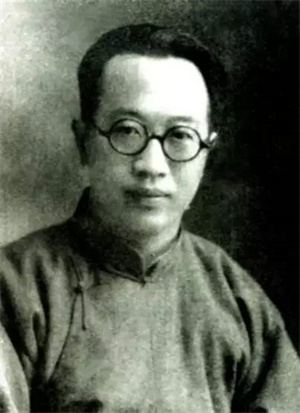
略谈英文文法[1]
◎ 梁实秋
三百多年前,英国没有讲英文文法的书[2]。英文没有文法么?英国人说话不根据文法么?不。话不是这样说[3]。任何文字当然有它一套组成的法则。大家说话,当然要根据一套公认的法则,否则大家随便乱讲,彼此无从互相了解了。不过,我们要知道,所谓文法也者,不是任谁武断订定的,乃是由公认的语言习惯中归纳出来的一个系统。先有语言,后有文字,然后再有文法书。三百多年前的时候,英国有一些学者开始感觉到有撰写文法书的需要,于是以拉丁文的文法为蓝本,利用拉丁文法上的各种专门术语,编写英文文法书。莎士比亚的时代,英国人尚没有研读英文文法的。如果他们研读文法,研读的是拉丁文法。那时候英国的中学叫做“文法学校”,那文法是拉丁文法,不是英文文法,那时候尚无英文文法这样一个名词。大体讲来,英文本是一种北方的语言,硬用拉丁文法去分析英文,其结果当然不免要有一些牵强,更随时要遇到例外。
语言是活的,随时在变,字义以及句法等等都在变。我们现代所认为不合文法的词句,往往正是二三百年前大家通用的英文。不用说两三百年,三五十年间就可能有显著的变化。所以“标准的英文”是很难讲的。每一时代有其不同的标准,拿五十年前甚至一百年前的文法书来衡量现代的英文,实在是自寻烦恼的事[4]。
国人学习英文,喜欢从文法下手,以为一旦文法通晓,英文即可豁然贯通。这当然不是没有理由。不过这是一个旧法子,较新的法子是不从死板的抽象的文法理论下手,而去直接的去学习那活的语言方式。我们儿时学语,何尝理会什么文法,一年半载的工夫我们就会说话了。学习外国语,当然比较难得多,但是道理还是一样[5]。合理的学习语言的方法,那是自然的学习方法。
这一点粗浅的道理,谁都晓得。所以我们的课程标准明白规定不许学校单独讲授文法[6]。可是事实上,我知道许多学校依然是在讲解文法,学生们依然是在钻研文法。其所以如此,是因为大家都不免有一点惰性,不易接纳新的观点,同时也是因为平时我们没有把英文教好学好,急来抱佛脚,以为研读文法是学习英文的捷径。
文法不是不可以讲[7]。句子的构造法最关重要。例如说,“我有一本书”,这在中文英文没有什么分别,用不着特别致力的去学习。“你住在哪里?”这句话中英文就不一样了。这就需要反复练习,以养成语言习惯。中文语法和英文语法究竟有多少不同处,需要彻底研究,以这研究的结果来做英语教学的准则,是最合理的学习英文的方法。死记文法规则,“形容词分几种”,“子句有几种”……是事倍而功半的。
梁实秋所著《略谈英文文法》一文,言简意赅,老马识途,指出死抠语法书是国人英语学习的一大通病,具参考价值。
[1]“略谈英文文法”译为A Little Chat about English Grammar,A Brief Chat on English Grammar或A Few Words about English Grammar皆可。
[2]“讲英文文法的书”即“英语语法书”,译为English grammars,其中grammars作“语法书”(books describing grammar rules或grammar books)解,为可数名词。
[3]“不。话不是这样说”不宜按字面直译,现按“不,情况不是这样”译为No, that was not the case。
[4]“实在是自寻烦恼的事”可按“实在是无事自扰”、“实在是瞎忙”之意译为It will really be much ado about nothing或It will really be much fuss over nothing等。
[5]“但是道理还是一样”译为But the same reason holds good,其中holds good或holds true是成语,作“仍然适用”解。
[6]“明白规定不许学校单独讲授文法”可按“明确禁止把语法作为一门在堂上单独讲授的科目”译为has explicitly ruled out the teaching of grammar in the classroom as an independent subject。
[7]“文法不是不可以讲”应理解为“但我们还是应注意文理”而作如下处理:Nevertheless, we still have to mind our grammar,其中grammar作“文理通顺与否”解;mind作“注意”解。
A Little Chat about English Grammar
◎ Liang Shiqiu
Over 300 years ago, there were no English grammars in England. Was it because at that time the English language had no grammar or Englishmen spoke without following any grammatical rules? No, that was not the case. Any language of course has rules to go by. All people speak a language according to a set of generally accepted rules, for otherwise their speech would be all topsy-turvy and unintelligible. We ought to know, however, that grammar, rather than something arbitrarily created, is a system drawn from common linguistic usage. Speech comes first, then the written language, and then the grammar book. Over 300 years ago, some scholars in England, realizing the necessity for an English grammar, began to work on it on the model of Latin grammar, borrowing heavily from its terminology. In Shakespeare’s time, nobody in England studied English grammar. What they studied was Latin grammar. Middle schools then were known as“grammar schools”, the word“grammar”referring to“Latin grammar”instead of“English grammar”, a term then non-existent. As English was largely a northern language, the forced application of Latin grammar to its analysis ended inevitably in inadequacies and frequent exceptions to rules.
A living language changes all the time. Its word meanings, sentence structures, etc. all keep changing. Phrases and sentences which we today think ungrammatical were often in common use 2–3 centuries ago. It might take only 3–5 decades rather than 2–3 centuries for a marked linguistic change to occur. Therefore, it is very difficult to speak“standard English.”Each historical period has a different standard of its own. It will be much ado about nothing to judge of modern English by its grammar of 50 or even 100 years ago.
People of our country tend to overstress the importance of grammar when they begin to study English, thinking that once they have acquired a good knowledge of grammar, they will have thoroughly mastered the language. The method they pursue is outdated though not a hundred percent wrong. The new method is by learning directly from the living speech instead of by starting with the rigid and abstract theory of grammar. When people learn to speak in childhood, they never study any grammar. And yet they learn to speak in but a year or so. Of course it is much more difficult with the study of a foreign language. But the same reason holds good. The proper method is by learning naturally.
The above-mentioned shallow view is common knowledge. Therefore our school syllabus has explicitly ruled out the teaching of grammar in the classroom as an independent subject. But, fact is, as far as I know, many schools are still teaching a grammar book and students are still buried in its study — partly because people are generally inert and reluctant to accept new ideas, and partly because, having failed to teach or learn successfully, they hastily seek help from grammar at the last moment, regarding it as a shortcut to mastering English.
Nevertheless, we still have to mind our grammar. Sentence structure is of great importance. For instance, the English sentence I have a book and its Chinese equivalent Wo you yi ben shu(我有一本书) are practically the same in structure, and hence can be learned without too much difficulty. On the other hand, the English sentence Where do you live? is different in structure from its Chinese equivalent Ni zhu zai na li?(你住在哪里?), and hence needs repeated drilling till you get used to it. It requires a thorough study to find out where the two languages differ grammatically so as to facilitate the teaching and learning of English. The mechanical memorizing of such grammatical details as“classification of adjectives”,“classification of clauses”, etc. will achieve little result despite great effort.
未经允许不得转载:帕布莉卡 » 梁实秋《略谈英文文法》 -经典散文英译-中英双语赏析
 帕布莉卡
帕布莉卡


 爱是一颗心遇到另一颗心(出处+配图)
爱是一颗心遇到另一颗心(出处+配图) 

